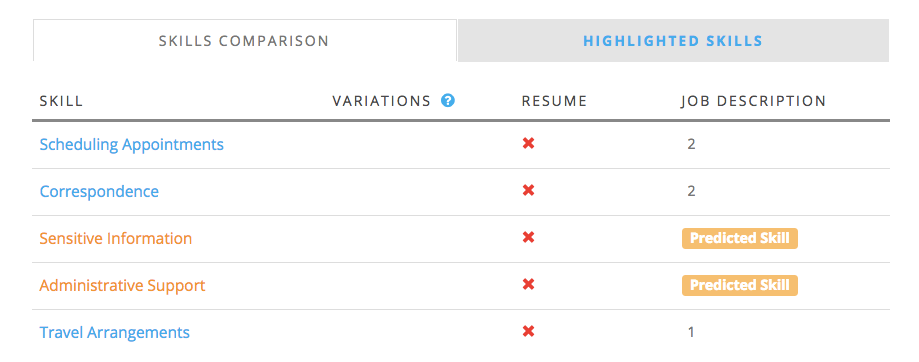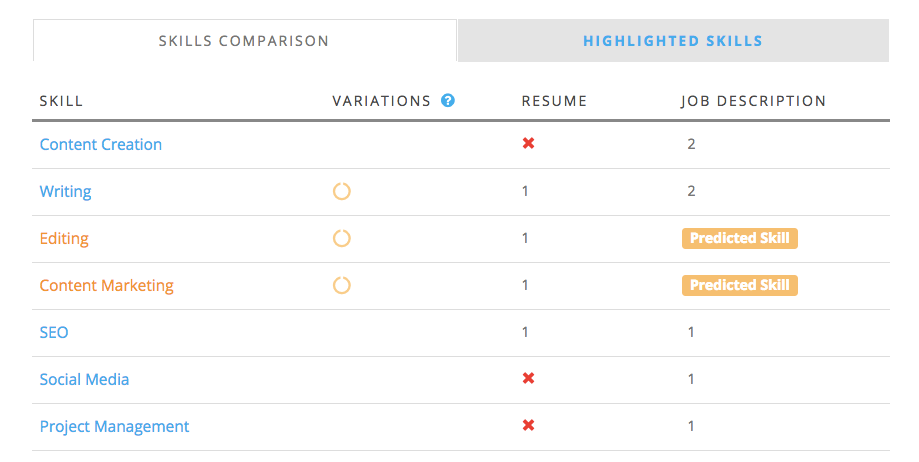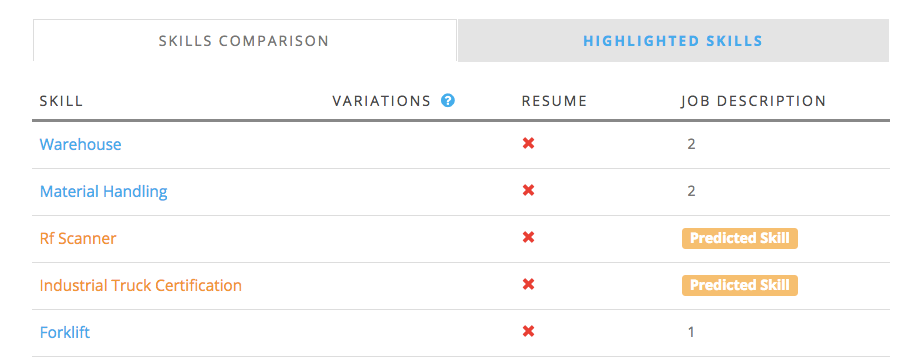Using the same resume to spam open jobs is a great way to rack up rejections. A better approach is to craft a targeted resume based on the specific skills requested in the job description.
Unfortunately, the targeted resume approach relies on a job description that provides actual guidance through a comprehensive list of skills and requirements. What happens when the job description is vague or incomplete?
In these cases, knowing which skills the hiring team wants even before they do will give you a competitive advantage. It’s all about finding the hidden skills.
Job description writers don’t know what they’re talking about
The people tasked with writing job listings aren’t typically experts in the field. It’s not their fault– HR professionals can’t be expected to have encyclopedic knowledge of every new role in the company and how it will interact with existing positions.
There are bound to be blind spots even when the HR manager or recruiter gets input from the departmental hiring manager. A hiring manager might understand what everyone on their team does in broad terms but won’t necessarily understand the specific skills and knowledge used on a daily basis.
This uncertainty and lack of understanding leads to generic, half-baked job postings that are missing key skills, forgetting obvious requirements, and leading job seekers astray. But just because key industry skills didn’t make it to the job description doesn’t mean they shouldn’t be featured on your resume.
>> Jobscan now shows you the top skills missing from the job description <<
Generic job description templates
When there isn’t an expert available to write a job description, hiring professionals often rely on internal or public templates.
“We have a template for different positions that we generally hire,” a non-profit recruiter told Jobscan.
A job description might also be cobbled together based on other companies’ listings. Alternatively, generic sample job descriptions are often copied and pasted for real job listings. (Example.) In these cases, the job description won’t include skills and requirements specific to the company’s needs.
What good is a targeted resume based on a job description that’s not even targeted to the job?
Figuring it out as they go along
When a new role is created, it’s not uncommon for companies to jump into the hiring process and figure it out as they go. They start with a broad job description then refine their specific requirements and preferences once they start seeing resumes and interviewing candidates.
For example, a tech startup that wants to delve into data science for the first time might not know the technical requirements beyond a few buzzwords. Once they start interacting with a few candidates, they’ll get ideas for additional skills and experience they actually want.
>> Jobscan’s new feature keeps you a step ahead of the pack <<
Hidden skills showcase your expertise
The only way to survive this process as a candidate is to be ahead of the curve and prove that you know what the company needs even before they do.
If a recruiter is in over their head sourcing their first Data Scientist hire, which candidate will they be more attracted to?
- Candidate 1, who mirrored their generic request for 4 years experience with data science and machine learning
- Candidate 2, who has those broad keywords in addition to specific data science hard skills like R, Python, SQL, and Tableau
Candidate 2 appears more knowledgeable and will be more attractive as the recruiter refines their job description because the candidate knew the hidden skills.
>> Jobscan now shows you the skills they didn’t even know they needed <<
It’s not typically advisable to stuff your resume with a long list of skills that aren’t mentioned in a job description. But when the job description is lacking, it’s smart to list additional relevant skills.
The operative word is “relevant.” For example, if you’re applying for an e-commerce job with a vague description, volunteering that you have experience operating an online store with the popular service Shopify is a good thing to add to your resume. Meanwhile, listing door-to-door sales skills takes their attention away from the most important qualifications.
Even if a job description is pretty thorough, adding a couple extra relevant skills might give you an edge over the competition.
Intelligent hidden skills for your targeted resume
Jobscan has addressed the hidden skills problem by adding Predicted Skills to the resume optimization tool.
By analyzing millions of resumes and employing advanced machine learning techniques, Jobscan can now scan your job description and suggest skills for your resume that weren’t included (but probably should’ve been) based on industry and other skills present.
Whether the company doesn’t understand the job, simply forgot key skills, or used a generic sample template, Predicted Skills will help you read between the lines and craft a stronger targeted resume.
Here are a few real examples from the resume match report:





















